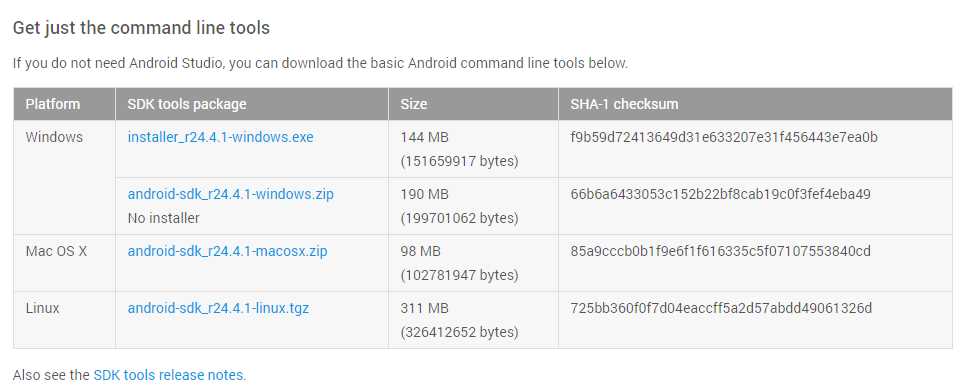

You can download these system images while creating Android Virtual Devices (AVDs) within its manager. Each platform version contains the supported system images. Running the emulator will require you to have a system image, an additional tool to your toolset. This emulator is a QEMU-based device-emulation tool that allows you to debug and test your apps in an actual Android runtime environment even without using any physical devices. It can be used to install an Android app file on any of your devices and allows you to access additional shell tools like bmgr and logcat. One of the tools included in this group is the Android Debug Bridge (adb). It works along with Build tools for encryption, security, and file size purposes.

These tools are customized and used to support new features of Android’s latest version, as well as the prior versions.

Now that you have a basic knowledge about the toolset, you should also understand that even if it contains almost everything you need to create and further develop an Android software, it still needs the support of other important command-line tools such as Platform tools, and the Android Emulator, in order for you to get started. Most importantly, it comes with an emulated virtual device that is fully functional that allows you to test out your work in progress. These tools are platform-independent and are essential in creating Android apps, regardless of the version you are working for. This toolset includes a debugger, an emulator, Application Programming Interfaces (APIs), sample projects with source code as well as the required libraries to build Android apps. It gives mobile software developers the opportunity to manually fix, text, profile, debug, and update their own software within the same platform. You don't need to wait for the updates when you can do it yourself.Īndroid SDK is a toolset that enables developers to create and update different apps for Android devices. A reliable toolset for creating and updating Android applications


 0 kommentar(er)
0 kommentar(er)
